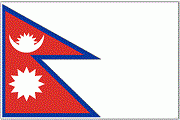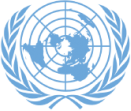
Madam Chair,
Nepal welcomes the Special Rapporteur’s report on the Rights of the Indigenous Peoples presented under this agenda item.
Madam Chair,
The Constitution of Nepal guarantees the rights of indigenous nationalities to live with dignity, along with their identity, and protect and promote languages as well as their traditional knowledge, skills, culture, social tradition and experience of the indigenous nationalities and local communities.
The Government of Nepal has placed high priority in preserving, protecting, and promoting fifty-nine different groups of Indigenous Peoples that comprise 34.5 percent of the total population.
As per the provisions in the Constitution, the Government has formed five Commissions including the Indigenous Nationalities Commission – dedicated to the protection and promotion of the rights and interests of respective indigenous communities.
In the Federal Parliament, 40 per cent of the 275 Members were elected on the basis of proportional representation in which, representation of Indigenous Peoples, women and other minorities was ensured as per the constitution.
National Foundation for Development of Indigenous Nationalities (NFDIN) – an autonomous body set up in 2002 is mandated to preserve and promote linguistic, cultural, and literary diversity of Indigenous peoples of Nepal.
Madam Chair,
Nepal is committed to the full realization of the social, economic and cultural rights of Indigenous Peoples with respect to their social and cultural identity, which is also in line with ILO Convention 169 that Nepal has ratified.
1. There is a legal provision for each community to preserve, promote its own language, script and culture, and to operate schools at the primary levels in the native languages. As reported in census 2011, there are 123 languages spoken as mother tongue in Nepal. The Government has a policy to develop curriculums for teaching in indigenous languages in the early grades of schools. So far, textbooks in twenty-four different languages have been prepared. These initiatives aim at protecting and promoting indigenous languages and encouraging easy access to school for children of indigenous community.
2. The policy of ‘affirmative action’ has allocated twenty-seven percent quotas to indigenous people in government service, with a view to making the management of state affairs an inclusive one.
3. In an effort to provide support to its vulnerable and disadvantaged population through social protection system, Nepal has introduced a wide range of social protection programmes including provisions of cash transfer programmes for the elderly, single women, people with disabilities, Dalits and endangered ethnicities; scholarship schemes for poor, girls and those from marginalized groups, among others.
4. Nepal’s Roadmap to SDGs has laid an emphasis on reducing adverse impact of climate change particularly on women, indigenous people and marginalized communities.
5. Guided by the letters and spirit of the constitution, Nepal is committed to implementing policies to empower and promote social, economic, political inclusiveness of all sections of the society including indigenous communities.
I conclude, Madam Chair, by reiterating Nepal’s total commitment for the rights of Indigenous Peoples into equitable, participatory and people-centered sustainable development process, and working closely with the international community in this regard.
I thank you.


